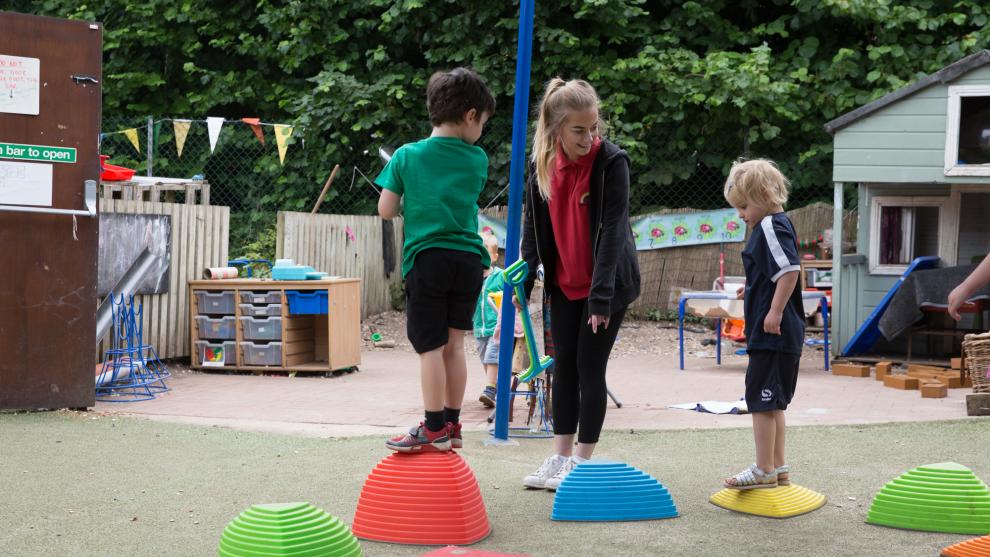
3 year olds
It's important that three year olds can enjoy being three, grow in confidence and learn at their own pace. This is the key for children’s emotional well- being and will build and consolidate foundational learning in preparation for school.
Supporting families: The home learning environment
Every family is unique, with their own strengths and challenges. It is not who parents and carers are, or where they live, that makes a difference, but what they do to support their children. This National Literacy Trust publication explores both challenges and opportunities and offers ideas for a “chat, play, read” approach to support all kinds of families.
Improving the Home Learning Environment a Behaviour Change Approach
There is a wealth of resources and well researched information, including how settings can support families, on the home learning environment webpage.
Supporting parents and carers as they begin to think about school
Receiving the school admissions letter, and school readiness leaflet, may be daunting for some parents. Some children will only just be four when they begin school. A child may be experiencing some developmental delay. To provide effective support, it is important that practitioners have sound knowledge of child development, and the ability to “tune in” to the individual child and family needs. Building genuine relationships with families is a crucial part of working together to promote being ready for school.
Good Practice Example: Lemon Grove Pre-School
This good practice example demonstrates the importance of having a good working knowledge of child development, and a holistic view which includes sensitive understanding of life at home.
Reflective Questions - Conversations worth having. How well do you and your practitioners relate to all parents and carers?
EYPP funding can be effectively used to provide bespoke help for the individual child, upskill practitioners and enhance the quality of provision for all children.
Building confidence and competence in the prime areas, underpins progress in all areas of learning and helps children be ready for school.
The following websites are helpful resources for supporting families:-
Personal Social and Emotional Development
Social and Emotional Aspects of Development
Guidance for practitioners working in the Early Years Foundation Stage
Inclusion Development Programme
Supporting children with Behavioural Emotional and Social Difficulties (BSED) Guidance for practitioners in the early years foundation stage.
(Please note that this is an archived document, and some terminology may be out of date)
Speech and language/communication
The ECAT website provides a wealth of resources for practitioners and families.
If you're concerned about a child’s speech and language development or there is a need to consolidate learning and build confidence.
The document below may be useful:
Do you have concerns about your child’s speech, language or communication
Physical development
Good family health is an important factor contributing to children’s well- being and learning. Further helpful information can be found at:
Special Educational Needs and / Disabilities (SEND)
Sometimes settings become aware of a child who has, or may have, special educational needs. It is important to take prompt action to engage with parents, implement a support plan and link with appropriate professionals. Inclusion funding may be available to support the child. If a child has disabilities, they may be eligible for the Disability Access Fund (DAF). Strategies and plans need to be put in place as early as possible to provide an enhanced transition to school.
Good Practice example: Louis (Communication and interaction needs)
Get help with your child's progress page is helpful to support families with children who may have SEND.
Extra help for pre-school children
An example of a one page child profile for parents:
Helpful information can be found on the Early Years (SEN) Inclusion Service website
The following resources may also be helpful for supporting some children.
Inclusion Development Programme (IDP) Supporting children with speech and language needs and communication
Please note that this is an archived document and some terminology may be out of date.
Helpful documents
- This archived resource still provides useful information and helpful reflective questions to promote good practice
-
A helpful guide to EYFS principles, especially useful for training and refreshing practitioners in good practice